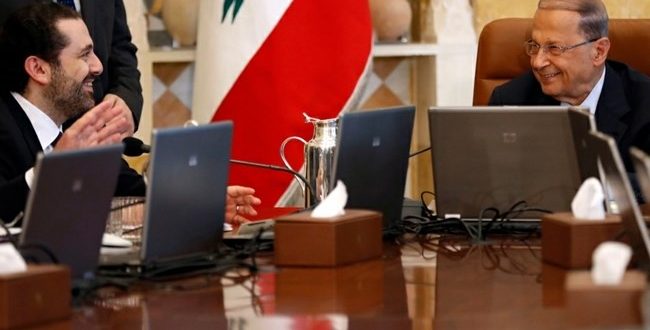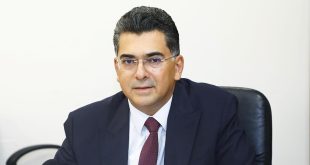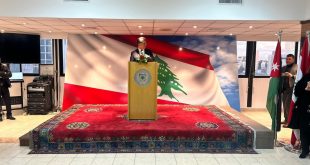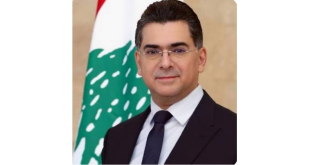Prime Minister Saad Hariri Tuesday hailed the Lebanese Army’s quick gains against Daesh (ISIS) on the northeastern border region as the “biggest vote of confidence in the role of the government, the state and the Army.”
He also said the key to halting the waste of public funds is by reducing the deficit in the state-owned Electricite du Liban, disclosing that the state is paying $2 billion annually to cover the company’s shortfall.
Hariri was speaking in Parliament Tuesday night on the first of a two-day general session, responding to a number of lawmakers who quizzed the government over its performance in the eight months it has been in office.
Twenty-two lawmakers spoke in the morning and evening sessions, touching on urgent issues dealing with daily life and calling for fighting corruption in the public administration and halting the waste of public funds. Contrary to wide expectations that the debate would be intense and fiery, the session was generally calm.
Wednesday’s debate session will now be turned into a legislative meeting to study and approve draft laws listed on the agenda of previous Parliament sessions.
“What is happening on the outskirts of [the northeastern towns of Ras Baalbeck and Al-Qaa] is the biggest [vote] of confidence in the role of the government, the state and the Army,” Hariri said in his speech Tuesday night, referring to the Army’s capture of 100 square kilometers out of the 120 square kilometers occupied by Daesh since it launched its offensive to expel the militants from the border region last Saturday at dawn.
Responding to MPs who spoke about “legalized waste” of public funds, Hariri said: “The talk about a legalized waste [of public funds] is the result of rents for state buildings. I confirm that the government is planning to assemble a number of government buildings in Beirut with the aim of reducing official rents.”
But Hariri warned that the “dangerous aspect of legalized waste” stemmed from the state’s subsidy to the deficit-burdened electricity company. “The state has so far paid $30 billion to subsidize the electricity [company],” he said, adding that the Treasury pays $2 billion annually to cover EDL’s deficit.
Hariri hinted that tariffs would have to be raised if a 24-hour electricity supply is to be ensured. He called for drawing up “a clear plan” to solve the chronic energy problem.
“The country currently has a production capacity of 1,500 megawatts, and needs 3,000 MW,” he said.
Hariri hit back at the government’s critics over corruption, urging them to name those involved in graft so that they can be prosecuted.
“We always talk about corruption but we don’t have names,” Hariri said. “If a minister from the Future Movement is found to be corrupt, we will prosecute him.”
In his speech during the morning session chaired by Speaker Nabih Berri, Hariri said the government’s decision to grant the Army a free hand to expel terrorist organizations – Daesh (ISIS) and the Jabhat Fatah al-Sham (formerly the Nusra Front) – from the northeastern border region was the most valuable achievement. “This government’s record is full of work, achievements and difficulties that have been confirmed in the past eight months. However, the achievement that the Lebanese Army is writing with the blood of its heroes is the most precious achievement for all of us,” Hariri said.
He added that the Army’s offensive against Daesh reflected “the decision of the Lebanese state and government to confront the terrorist organizations and expel their elements from Lebanon.”Hariri reaffirmed his government’s commitment to hold next year’s parliamentary elections under a new electoral law and ensure all security conditions for fair and democratic voting.
The prime minister said cooperation between the executive and legislative branches of power had helped to solve many issues that had been stuck for many years, including the endorsement of a new electoral law and the public sector’s salary hike bill. “Today we reaffirm that we will work to hold elections in accordance with the new law and ensure all security and technical requirements for fair and democratic elections,” Hariri said.
On June 16, Parliament ratified the landmark vote law based on proportional representation, with Lebanon divided into 15 electoral districts, clearing the way for the first legislative elections in nine years between March and May next year. Last month, Parliament endorsed the salary scale bill for public employees along with a string of new taxes to finance the bill estimated at more than $800 million annually.
Hariri stressed that the government has worked hard to maintain security and political stability. “Stability on security levels is the result of political stability. This government has worked very hard on both and cooperation between security services was crucial in this regard,” he said.
Since the 30-member Cabinet was formed on Dec. 18, it has held 38 sessions during which has taken 1,268 decisions, signed 518 decrees and referred 32 draft laws to Parliament, Hariri said.
The main issues the government has worked on include reactivating bilateral relations with brotherly and friendly countries, Hariri said, with nine official visits to those countries, aimed at protecting Lebanon from the fallout of regional conflicts. Among the government’s key achievements, Hariri cited endorsing the 2017 draft state budget, passing the electoral law, improving road networks, making large-scale diplomatic appointments and forming 12 ministerial committees.
All MPs who spoke praised the Army’s role in defending Lebanon and called for rallying behind it in its current offensive against Daesh.
Hezbollah MP Hasan Fadlallah called on the government to hold those involved in corruption accountable. “Bringing up the corruption files will not undermine confidence, but the lack of accountability will undermine confidence,” he said. “The problem in Lebanon is that all of us are talking about corruption. But we hope one day to see accountability.”
Fadlallah said the absence of state budgets in recent years was to protect “legalized corruption.” He said the state was paying “astronomical rents for buildings, while there is real estate for the state used for dumping garbage.”
 Lebanese Ministry of Information
Lebanese Ministry of Information



